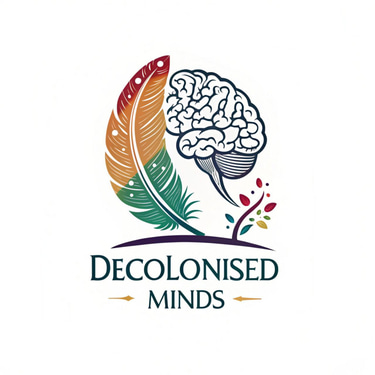Mindfulness Practices: Integrating Cultural Wisdom
Integrating cultural wisdom into mindfulness to honours its roots and to make it more inclusive and effective for diverse populations.
By Talha AlAli, Founder of Decolonised Minds
1/22/20251 min read
Mindfulness, the practice of cultivating present-moment awareness, has gained widespread popularity as a tool for improving mental health and well-being. However, the modern mindfulness movement often detaches these practices from their cultural origins, particularly Buddhist, Indigenous, and other non-Western traditions (Kabat-Zinn, 2003). Integrating cultural wisdom into mindfulness not only honours its roots but also enriches the practice, making it more inclusive and effective for diverse populations.
Cultural wisdom offers valuable insights into mindfulness, emphasising the interconnectedness of individuals, communities, and the natural world. Indigenous practices, for example, often incorporate mindfulness into rituals, storytelling, and nature-based spirituality, fostering a deep sense of gratitude and relational awareness (Gone, 2013). Similarly, traditional Buddhist teachings highlight mindfulness as part of a broader ethical framework, encompassing compassion, humility, and interconnectedness (Kirmayer et al., 2011). Recognising these holistic approaches can deepen the therapeutic application of mindfulness by addressing not just individual distress but also collective healing.
Incorporating cultural wisdom requires therapists and practitioners to embrace cultural humility. This involves acknowledging the limitations of a one-size-fits-all approach and exploring practices that resonate with clients’ cultural identities (Tervalon & Murray-García, 1998). For example, a practitioner working with clients from the MENA region might adapt mindfulness exercises to include elements of Islamic prayer or recitation, aligning with the client’s cultural and spiritual practices.
By integrating cultural wisdom into modern mindfulness, practitioners can create a practice that is more inclusive, meaningful, and impactful. This approach not only benefits individual clients but also fosters greater cultural appreciation and respect, bridging the gap between traditional wisdom and contemporary therapeutic methods.
References
• Gone, J. P. (2013). Redressing First Nations historical trauma: Theorising mechanisms for Indigenous culture as mental health treatment. Transcultural Psychiatry, 50(5), 683–706.
• Kabat-Zinn, J. (2003). Mindfulness-based interventions in context: Past, present, and future. Clinical Psychology: Science and Practice, 10(2), 144–156.
• Kirmayer, L. J., Gone, J. P., & Moses, J. (2011). Rethinking historical trauma. Transcultural Psychiatry, 51(3), 299–319.
• Tervalon, M., & Murray-García, J. (1998). Cultural humility versus cultural competence: A critical distinction in defining physician training outcomes in multicultural education. Journal of Health Care for the Poor and Underserved, 9(2), 117–125.
